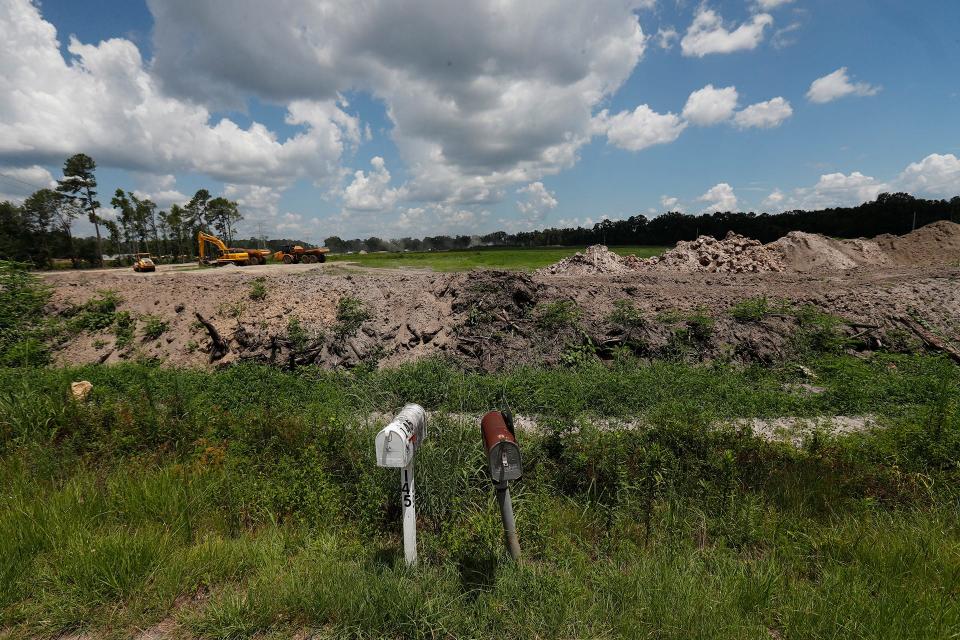Let the sun shine in … and on and on: Sunshine Week begs reflection on local watchdog effort
This commentary is written by Editor Amy Paige Condon.
Amid all the St. Patrick’s Day planning and coverage last week, we let slip celebrating an important observance in our profession: March 12 through 18, 2023, was Sunshine Week – which is not at all about the weather or Daylight Savings Time.
Rather, it’s about accountability and transparency.
Sunshine Week honors the 1976 passage of the federal Government in Sunshine Act, which requires freedom of information from certain businesses (such as pharmaceutical manufacturers) and government agencies in order to maintain integrity and to prevent fraud, corruption and inequality. It’s no coincidence that this law passed after the misinformation of the Vietnam War and Watergate to restore trust in government institutions.
Georgia’s current Open Meetings and Open Records laws were revised in 2012, extending greater access to citizens to the business of government. In fact, Georgia employs one of the broadest Sunshine laws among the 50 states, but that doesn’t mean Savannah Morning News reporters don’t have to fight daily to get to the heart of decisions, policies, procedures and actions at the local level that affect our lives.
Freedom of Information:Chatham paid for study on Savannah High shooting hoax. School police won't share results.
Why are Sunshine Laws so important?
Holding elected and civic leaders as well as our institutions (educational, judicial, religious and governmental) accountable is the essential role of the Fourth Estate, because it is our role to frame issues for the public by following the facts — without pride, prejudice or malice — no matter where those lead us. That role often frames us as adversaries when many think our job should be public relations. But as one editor of the mid-20th century put it: A newspaper isn’t worth printing if all it seeks is to be popular.
During the past year, Savannah Morning News reporters have typed their fingers raw filing state open records and federal Freedom of Information Act requests because our city and county government officials prefer light-on-the-details press releases or to stick to their talking points rather than answer hard questions. Now more than in previous years, we get more requests to submit questions via email and ahead of interviews that then receive canned responses. Public information officers tend to forget the "public" aspect of their roles.
Still, our efforts have yielded important results:

Operation Blooming Onion
Public safety reporter Drew Favakeh dug deep into one of the largest federal indictments of labor trafficking in state and national history. He partnered with state reporter Abraham Kenmore and national investigative reporter Maria Perez to produce in-depth coverage of Operation Blooming Onion.
‘Beyond troubling’: Current, former government officials tied to human trafficking probe in Georgia
Under the Table:Farm labor traffickers bribed Georgia government employees, federal agent testifies
To the Top:Georgia state senator relied on farm contractors involved in major human trafficking case

Police accountability
A team of reporters including former city/county beat reporter Katie Nussbaum, former watchdog reporter Raisa Habersham, general assignment reporter Nancy Guan, and Favakeh took a multi-pronged approach to uncovering leadership, morale, and failings in following established protocols within the Savannah Police Department that led to an increase in police-involved shootings, human resource complaints and the death of people in police custody.
Ernest Ferguson:Savannah Police fire officer who shot and killed Saudi Lee in Carver Village in June
More:Savannah Police Department investigating attempted hanging by suspect in custody
The Last Days of William Harvey: One year after his death in police custody, his family speaks
Lack of transparency, culture of fear: Savannah Police officers rate Chief Minter's performance

Port Wentworth
Guan, in her role covering the growing municipalities of Tybee Island, Pooler, Garden City and Port Wentworth held local officials accountable for behaviors that might otherwise have gone unreported.
'Make it happen ...': Records reveal why Port Wentworth council member faced ethics hearing
'He was given the choice to retire.': Port Wentworth police chief violates policy, steps down
More:After repeated issues, Port Wentworth truncates contract with embattled public works company

Chatham County Detention Center
Favakeh continues to look into inmate deaths at the Chatham County Detention Center, even as his requests for copies of reports from the county on the efficacy of the for-profit medical services provider keep getting rebuffed.
More:Lee Michael Creely's last hours marked by withdrawal, medical indifference in Chatham County jail
These articles (and series of articles), along with stories exploring the Thiokol explosion, Savannah College of Art and Design, Yamacraw Village, and others strike close to unveiling the hidden power structures and how decisions get made outside public view. We’re in the weeds now exploring gun violence, school safety, graduation rates and municipal elections, among other topics.
What's at stake?
Why, then, does it matter that we acknowledge and celebrate Sunshine Week?
Because, as the Washington Post’s tagline proclaims, “Democracy dies in darkness.”
Reporters are the eyes, ears, feet and, sometimes, voice of the public they serve. If the public does not have access to vital information or the historical and impactful framing around an issue, how can they effectively engage in civic life, including voting?
Between 2004 and 2022, more than 2,514 local weekly newspapers shuttered their doors. More than 100 daily newspapers shifted to weekly publications, and more than 250 daily newspapers dissolved, including in cities as big as New Orleans. The loss of those watchdogs creates news deserts, diminishing the news literacy of citizens and allowing leaders and institutions to act without checks and balances. Citizens grow more prone to accept rumor, innuendo and disinformation spread through social channels as fact. Partisan divides fester. Corrupt officials get re-elected. Our faith in processes, policies and people erodes – none of which are helpful to the flourishing of democracy.
Our American experiment depends on an informed constituency. For that reason alone, we ― and that 'we' includes our local government ― should celebrate Sunshine Week every day.
Amy Paige Condon is an editor and content coach at Savannah Morning News. You can reach her at Acondon@gannett.com.
This article originally appeared on Savannah Morning News: National Sunshine Week celebrates open government, meetings, records

